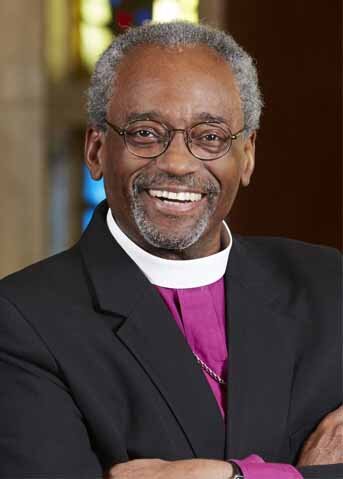When a massive dust storm formed behind them, they now feared being trapped in the dark, churning grime and becoming easy prey for their pursuers.
Then, just as suddenly, Jesus materialized in the storm clouds and dust.
“He appeared as a mighty and wonderful man showing his protecting and lovely hands towards us with a sweet smile,’ exulted newly-baptized Rizwan. “Jesus saved us! He himself blocked the road of militants in the form of a dust storm.”
The gunfire slowed and stopped, enabling the bus to drive safely back to the church.
Two months later, the same mission organization released a story of how an Arab woman from a prominent Muslim family (her father a top religious authority in the region) found herself near death after being bitten by a highly poisonous Saharan snake. While her sharp-shooting brother Haroon (not his real name) managed to kill the viper, it nearly killed her (that story in full here).
Hajira (not her real name) spent the next four days near death in a coma. In a few minutes of wakefulness, she heard doctors discussing the renal failure and increasing fibrinolysis certain to take her life. Losing hope, she turned to the wall, weeping, and tried to prepare herself for death. She fell asleep hoping to never wake up.
As she slept, an angel appeared before her. “Call on Jesus, the son of the Most High, who was crucified for you, died and rose from the dead.”
“Prophet Jesus, the son of Mary?” she asked with irritation. “He was not crucified; and he was not greater than my prophet.”
“You are wrong,” the angel replied. “Jesus is the Lord of the prophets. He is the true saviour. He can heal you from all sickness and save you from sin and death. Call on him with your heart and mouth.”
The angel disappeared. She awoke to see her brother Haroon standing beside her. “Were you dreaming?” he inquired. “I heard you say something about the prophet Jesus.”
She dreaded his anger as she told him about the angel and what he’d said. To her amazement, Haroon then related his own experience in a dust storm several months earlier. Yes, THAT dust storm!
He’d received information at dawn one morning that a Christian group planned a baptismal service in the Arabian Sea that day. Alerting his wing of 18 armed militants, the gang rushed to the seashore. Planning to kill everyone in the sea during the service, they aimed to terrify the world into realizing death awaited any Christians attempting to evangelize in their region.
But the service had already ended when they arrived. Seeing a bus leaving the scene, they opened fire and the chase began. As they fired away, he explained that within seconds a giant dust storm formed directly in front of their vehicles. Unable to see or move forward, they climbed from their cars and kept shooting into the dust.
To their astonishment, the angry face of Jesus appeared in the swirling sand, eyes ablaze. “Why are you persecuting me?” his voice thundered. “It’s hard for you to kick against the pricks.” Jesus’ voice literally blew the fighters over and sent their guns flying. Haroon explained they somehow managed to get themselves back on their feet, but couldn’t utter a word.
[Note the similarities to the story from Acts 26:14, where Jesus appears to murderous Saul—equally intent on killing Christians and eventually to be the Apostle Paul—with the same plea and the same results.]
Jesus' voice thundered again. “I came to the world not to destroy anyone, but to save you. Go in peace.” He then vanished, the dust storm disappearing with him.
Haroon tried to explain the dreadful fear, yet abundant peace, they all felt simultaneously—nothing like anything he or they had ever known.
When their voices returned, all but two of the men praised and thanked God. The two argued it couldn’t have been from God, and all left the place confounded.
Haroon shared the story with their father, who warned him not to tell others. His own band of militants, however, laid down their arms. "This all happened a few days before you were bitten!" he shared with Hajira. Overwhelmed and overjoyed, brother and sister joined hands in prayer.
“Lord Jesus, if you are the true saviour, show us the way,” prayed Haroon. “Jesus, if you are the true saviour, forgive our sins. Jesus, if you are the true saviour, heal both our physical and mental sickness. Jesus, if you are the true saviour, send someone to us for further guidance. Amen”.
The siblings wept in joy and gratitude. A couple of hours later, Hajira still at his sister’s side, two strangers arrived in her room unexpectedly. While neither had seen them before, the elder man addressed each by name.
“The Lord Jesus heard your prayers which you both prayed together,” he began. “The angel who visited you appeared before me also, and asked me to visit you, guide you to salvation, and pray for you. So I left my house at once to come see you.”
He introduced himself as Pastor Paul of the Bibles for Mideast organization, and then explained to them who Jesus is, and why he was crucified and died.
Hajira and Haroom repented of their sins and accepted Jesus as Lord and saviour. As Pastor Paul put his hands on Hajira’s head and prayed for her deliverance and healing, tremendous power flowed through her body. She rose, completely healed.
Hospital tests proved her healing, and doctors could not help but acknowledge a miracle had happened. Neither could the siblings’ family, who soon all came to Christ. They now ask our prayers for protection and strength to survive the persecution sure to come.
____________________________________________________
You can visit Bibles for Mideast here and read more remarkable stories of rescue and salvation. They work secretly in highly restrictive areas, evangelizing, distributing bibles (free of charge), and establishing house churches. Most on their team members (including their director) have converted from Islam, many of the rest from Hinduism.
















